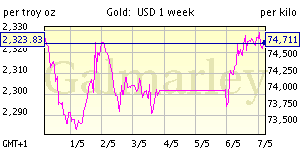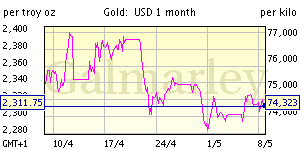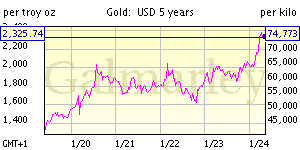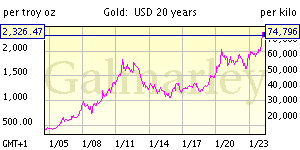I entered the investment world in 1983, fresh out of college as a broker with Jefferson-Pilot Financial Services. In those 24 years I've seen a lot of change in our business. Some good, some bad, but hey, that's life.
For eight years I worked as an Investment Officer in several banks, but eventually left due to the conflict of interest between what was best for the customer and what was best for the bank.
Cheat the customer, or lose your job. I saved them the trouble of firing me.
After going independent in 1994 I came to appreciate the fact that investor's are often completely dependent upon the advice of their advisors, which is a responsibility that should not be take lightly.
And because of this charge, I have sought to hold the hands of my clients through the the inevitable financial turbulence that life brings. After all, that's what we get paid for!
To this end, I have applied the following principles successfully for the last 24 years:
1. Only buy quality investments
2. Don't speculate
3. Hold investments for the long term
4. Don't panic out of quality investments during the inevitable downturns, in fact, buy more while the price is lower
5. Don't be afraid to sell investments that deteriorate in quality
6. Diversify among non-correlated asset types to achieve overall portfolio stability
Those rules are a thing of the past.
The New Rules
There are no new rules. There are no old rules. We are in the wild west and the Sheriff (US Treasury and the Federal Reserve) is on the payroll of the biggest crooks in town (the bankers).
Let's look at the validity of the above "tried and true" principles, in light of the recent developments within the financial services landscape.
Buy only quality investments.
Sounds good, but what is a quality investment? Two years ago Fannie, Freddie, Wachovia and a host of other companies were considered the highest quality investments available. But with regulators looking the other way, shareholders of these companies have been raped by insiders who are supposed to be loyal to the shareholders, but are only loyal to themselves.
Financial statements are useless in determining which companies are quality and which are not. Companies routinely inflate their financials, giving the impression of health when there is really rot and decay underneath.
Don't Speculate
Financial commentator Erich Simon writes, "It is fashionable these days to anticipate market bottoms based on contrarian indicators. The greater the number of bears, the closer to a bottom. But this is not an economic truism. Indeed, if you take the quantity of bad news and the pace at which it is assaulting the system, this indicator now is telegraphing a system in collapse. We have only to look to the droves of Madoffs coming into view, swindlers who operated under the umbrella of the SEC, the Enrons and the Tycos of yesterday. Nearly every publicly traded issue is now being exposed as a post-GAAP sham.
How big a sham? If you take the total number of shares outstanding in every publicly traded company (using the Wilshire) and divide it by gross money supply (never mind debt comparisons) one can gain insight into the worthlessness of equities -- and the insulting charade of liquidity injections at any level."
In light of the above, ANY investment is a speculation at this point.
Don't Panic Out Of Quality Investments During Inevitable Market Downturns
From Chris Laird's Prudent Squirrel Newsletter
"And, this leads me to another concern, which we have talked about before, the idea that when you invest in the financial markets, even the bond markets, you are really investing in a black box. What I call black box markets. In other words, most companies are not truthful about their health many times. Honestly, would you entrust thousands of dollars to someone and not know their financial status and only rely on some report they give each quarter????The financial industry in particular. And, there is nothing being done to improve this either, particularly with no less than the US Treasury saying they won’t say who is getting the TARP money.
So, the point is, you need to err on the side of caution, and certainly not trust the financial media that much, and even companies’ financial reports. This all goes for investment funds and money market funds as well. This goes for ETFs and everything too. There are shenanigans everywhere."
In light of the above, an advisor no longer has any basis for recommending that a customer hold or sell and investments. It is a crap shoot at best.
Diversify for Safety
The straw that broke the camel's back for me was when I recently allocated a larger portion of my clients' funds into gold shares as the economy and stock market deteriorated. In addition, the currency devalutation caused by the bailout package should have made gold, and gold mining shares skyrocket.
The idea of the increased allocation to metals was to offset the deterioration fundamentals of our paper positions.
Sure enough, the paper investments dropped as they were supposed to. But the metals funds (not gold itself) dropped even more!
According to Erich Simon, "The mining equities collapsed because they are subject to the same corruption as the broader indices. “Corruption” is one man's quest to secure a larger piece of real estate. The primary corruption in all the issues was stock dilution through share-printing and marketing through Wall Street under government sanction. Shares were exchanged for currency, and currency is a claim against man-hours of work so that governments can apportion scarce resources.
So the government, Wall Street and corporate insiders absorbed all of the prevailing man-hours of work and laid claim to all of the scarce resources, foremost among them, time -- yesterday's, today's and tomorrow's.
Meanwhile, mining shares have been looted along with the rest of the publicly traded issues. They have an underlying value, but a great deal of that value will not be available to U.S. investors because these global ventures have been targeted and are being absorbed by foreign ownership: “passive” investment by China, and more aggressive takeovers by others.
Governments like Japan, with their own imperialistic mandate, are securing ownership at the expense of greedy insiders who have been bankrupted by financial deleveraging. Against the growing tide of East versus West, a hungry and focused discipline versus wanton excess and division, a battle is raging that the West seems likely to lose.
The international race for ownership of metals mines, however, is testimony to the worth of these metals -- for industry and value (money). Gold is strong and gaining as a monetary unit accepted by both East and West. While ideological skirmishes roil the borders of an overcrowded planet, the larger investment reality is resource depletion.
What was left of the dot.com bust rocketed into real estate. A part of that remaining wealth is today moving into gold."
Outside of tangibles (gold), it no longer is possible for the average investor or advisor to know where value lies.
(to be continued)
![[Most Recent Quotes from www.kitco.com]](http://www.kitconet.com/images/quotes_7a.gif)






